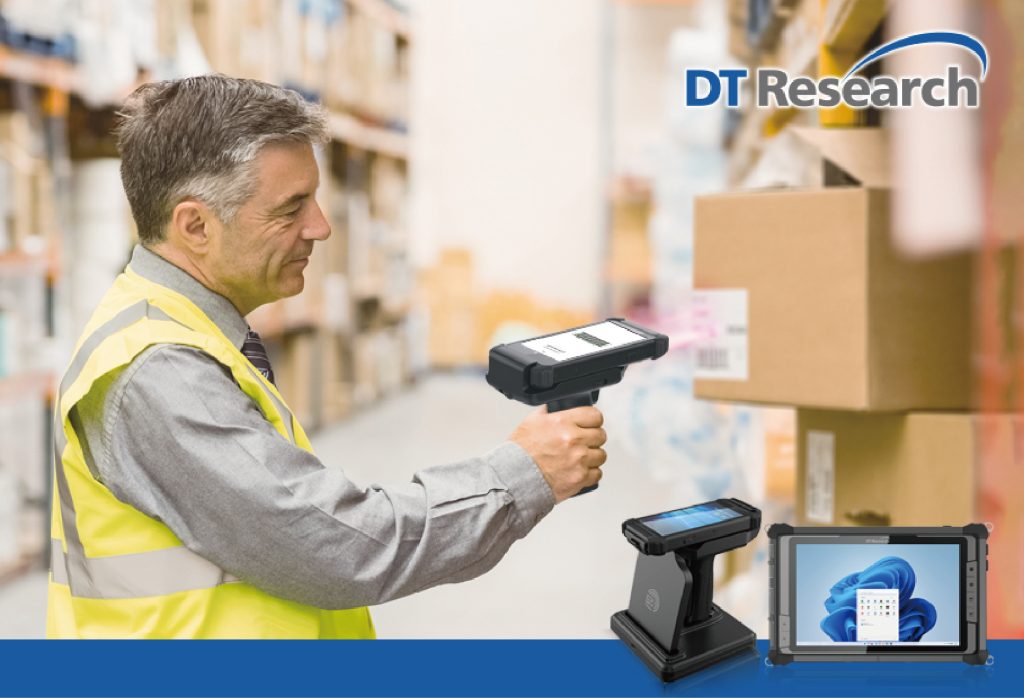
In the dynamic landscape of manufacturing and warehousing, where efficiency, accuracy, and compliance are paramount, the adoption of innovative technologies becomes imperative. Among these, RFID (Radio Frequency Identification) stands out as a game-changer, offering a plethora of benefits that not only streamlines operations, but also contributes to sustainable practices.
Let’s explore how rugged tablets with RFID technology promote sustainable operations in manufacturing and warehousing.
Real-Time Visibility:
RFID technology equips items with unique identifiers encoded in tags, which can be swiftly read by RFID readers. This capability furnishes real-time visibility into the whereabouts and status of items within the distribution center. As items traverse through the facility, RFID readers seamlessly track their movements, ensuring meticulous inventory management.
Automation and Efficiency:
By automating data capture, RFID systems alleviate the reliance on manual scans or data entry, thus minimizing human errors and ensuring up-to-date inventory records. This automation not only bolsters accuracy, but also enhances operational efficiency, saving both time and labor costs.
Accuracy:
Manual inventory counts often succumb to errors and are time-intensive. RFID solutions available, on the other hand, furnish highly precise, real-time inventory data. This accuracy is pivotal for mitigating stockouts, overstocking, and other inventory-related disruptions that can impede supply chain operations.
Supply Chain Compliance:
In industries governed by stringent regulations, such as pharmaceuticals and food, adherence to compliance standards is non-negotiable. RFID technology aids distribution centers in maintaining compliance by meticulously tracking and accounting for products at every stage of the supply chain. Rugged tablets offer an integrated RFID and barcode scanner for seamless scanning capabilities.
Serialization and Traceability:
RFID enables item-level serialization and traceability by assigning a unique identifier to each item encoded in its RFID tag. This facilitates comprehensive tracking of products throughout the supply chain, which is indispensable for product recalls and quality control measures.
Workforce Productivity:
By automating inventory management and alleviating the need for manual tasks like barcode scanning, RFID technology liberates the workforce to concentrate on value-added activities, such as order fulfillment and quality assurance. Rugged tablets offer the perfect asset for team members to improve productivity and efficiency of tasks, with real-time communication and data availability.
Inventory In-Real-Time:
RFID facilitates real-time inventory management, enabling optimal stock levels and curtailing excess inventory storage costs. Rugged tablets offer RFID integrations, that provide solutions for real-time inventorying including bulk inventory scanning as well as inventory tracking during shipment and arrival to a destination.
Data Analytics:
RFID systems generate a trove of data that can be harnessed for analytics. This data-driven approach empowers distribution centers to make informed decisions, optimize supply chain operations, and bolster overall efficiency. Rugged tablets allow data to be viewed by team members from across multiple departments in real-time to improve and empower decision making capabilities quickly.
RFID technology, with its unparalleled capabilities in real-time tracking, automation, and data-driven decision-making, emerges as a linchpin for sustainable operations in manufacturing and warehousing. The integration of RFID technology with rugged tablets not only augments inventory accuracy and supply chain compliance but also fosters operational agility and resilience in the face of evolving market dynamics.
By leveraging RFID technology embedded within rugged tablets, manufacturing and warehousing enterprises can embark on a transformative journey towards sustainable operations, fortified by enhanced visibility, efficiency, and compliance across the supply chain ecosystem.

